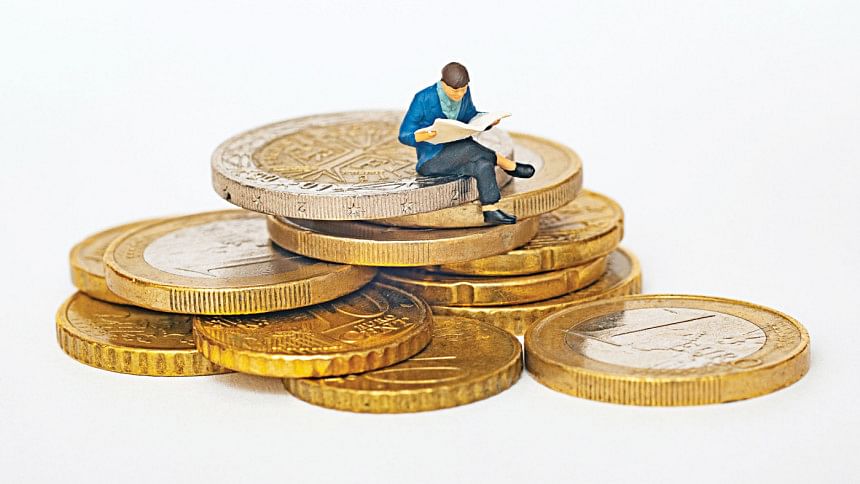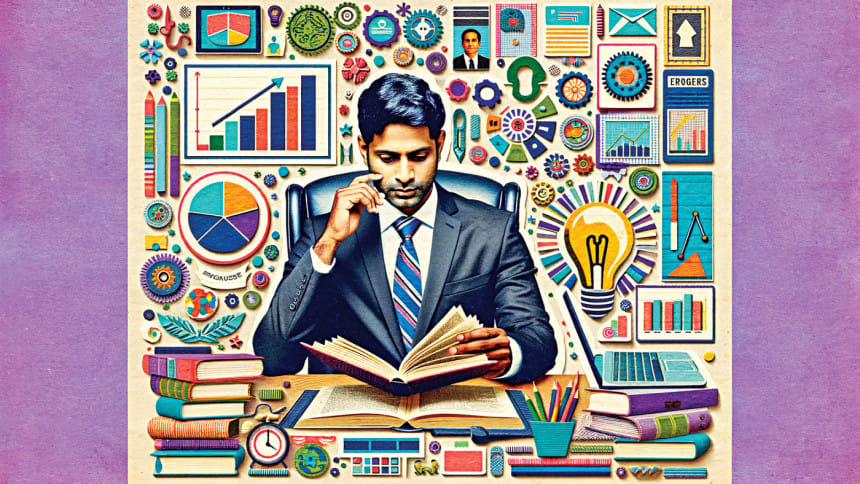Diversified investments and startups

Bangladesh's economic miracle is undeniable. Since independence in 1971, the nation's GDP has grown a staggering 7.5% per year on average, lifting millions out of poverty and propelling the country towards middle-income status. Bangladesh went from a nation grappling with poverty and infrastructural challenges to one of the fastest-growing economies in the world.
This remarkable transformation is attributed to a combination of factors, including strong demographic dividends, robust ready-made garment (RMG) exports, resilient remittance inflows, and macroeconomic stability. The country's GDP growth rate soared to 7.2% in the fiscal year 2021–2022, post-pandemic, further cementing its status as one of the fastest growing economies globally.
Despite its impressive growth, Bangladesh faces challenges such as rising inflation, energy shortages, and a balance-of-payments deficit. The nation is also grappling with a large amount of non-performing loans in the banking sector. These challenges underscore the need for continued policy reforms and strategic investments to maintain economic stability and growth.
While the allure of fixed-income instruments like government bonds persists, they offer limited growth potential, often failing to outpace inflation. For young investors seeking long-term wealth creation, a more dynamic approach is necessary.
Hence, a crucial question lingers: how can Bangladeshi youth, the demographic driving this growth, secure their own financial futures and contribute to the nation's steady prosperity?
While the allure of fixed-income instruments like government bonds persists, they offer limited growth potential, often failing to outpace inflation. For young investors seeking long-term wealth creation, a more dynamic approach is necessary. The answer lies not just in traditional investments, but in embracing a smarter, more diversified approach that includes land, property, agriculture and businesses.
Considering land investments. Bangladesh's urbanisation rate is skyrocketing, with the urban population projected to reach 50% by 2050. This surge presents a unique opportunity. Investing in land, particularly in developing infrastructure projects, offers the potential for significant capital appreciation as demand outstrips supply. Government initiatives such as, setting up 100 Economic Zones in the country, building multiple highways, bridges, etc., improving airport facilities and increasing railway connectivity is all poised to turbo-charge the country's real estate market.

With the introduction of startups such as Jomee Jomaa, the average Bangladeshi citizen can now claim a share of this pie by securely investing in lucrative high return generating land plots from the comfort of their homes, using nothing but the smartphone in their hands. The best part, Jomee Jomaa users can invest in fractionalized units of land starting from 1,000 taka.
Considering agriculture investments. Increase in the country's population is far outpacing the country's food production numbers. This imminent and fast approaching food crisis poses an existential threat to the country. Innovative agri-tech startups such as iFarmer, Wegro, etc. are working towards solving this problem by making it easier for farmers to secure financing, educating farmers on increasing crop yield, securing the farmers via insurance, and last but not the least making the agricultural supply chain more efficient by eliminating middlemen. These startups provide an excellent platform for users to diversify and invest in the agriculture sector, while generating lucrative profits, all from the comfort of their home and using only their smartphones.
Considering business investments. In addition to large conglomerates whose stocks are traded in the public stock market, small and medium enterprises (SMEs), and startups alike are now available to the general population for investing. Startups like biniyog.io are making it possible for people to invest in SMEs where the SME owners share profits generated by the business with the investors.
On top of ensuring verifying the viability of the business and conducting proper due diligence, biniyog.io also ensures that all their investments are shariah compliant to accommodate those who prefer halal investing. For those of us with a higher risk appetite, organisations like Bangladesh Angels Network (BAN) opens the door to invest in the earliest stages of start-ups where people can invest in the next bKash, Pathao, foodpanda, or Daraz.
Bangladesh now boasts a young, entrepreneurial population, brimming with ideas. By investing in these ventures, young investors not only contribute to job creation and economic diversification, but also gain exposure to high-growth potential. Imagine the ripple effect: a successful investment in a local tech startup could translate to not only outsized financial rewards for the investor, but also the creation of new jobs, the development of innovative solutions to tackle society's problems, and a boost to the country's competitiveness at a global level.
Execution of the shift towards this new investment strategy will require a lot of effort from both government and non-government entities alike. Fortunately, the government has already started playing its role in supporting this ecosystem through establishing entities like Startup Bangladesh. Startup Bangladesh provides the much-needed funding that enables rising startups of the country to grow and reach their true potential. However, ensuring proper funding is just the start.
The government will also need to up their game with policy reforms and guidelines in favour of startups, if we are to see more incumbents and consequent success stories within this ecosystem. I, for one, am deeply optimistic about the future of the startup ecosystem in Bangladesh and can't wait to see what this ecosystem will be and do over the next decade.
In essence, the time for Bangladeshi youth to embrace unconventional investment models is now. By looking beyond traditional options and venturing into the exciting world of land, property, agriculture and businesses, they can secure their own financial futures while simultaneously contributing to the nation's continued economic rise.
This is not just about personal gain; it's about building a brighter, more prosperous future for all Bangladeshis. Let us move beyond the limitations of the conventional and unlock the true potential of our collective financial power.
Alvi Sakib is the CEO and Co-Founder of Jomee Jomaa, a fractional land investment startup that aims to democratise access to real-estate investments in Bangladesh.

 For all latest news, follow The Daily Star's Google News channel.
For all latest news, follow The Daily Star's Google News channel. 



Comments